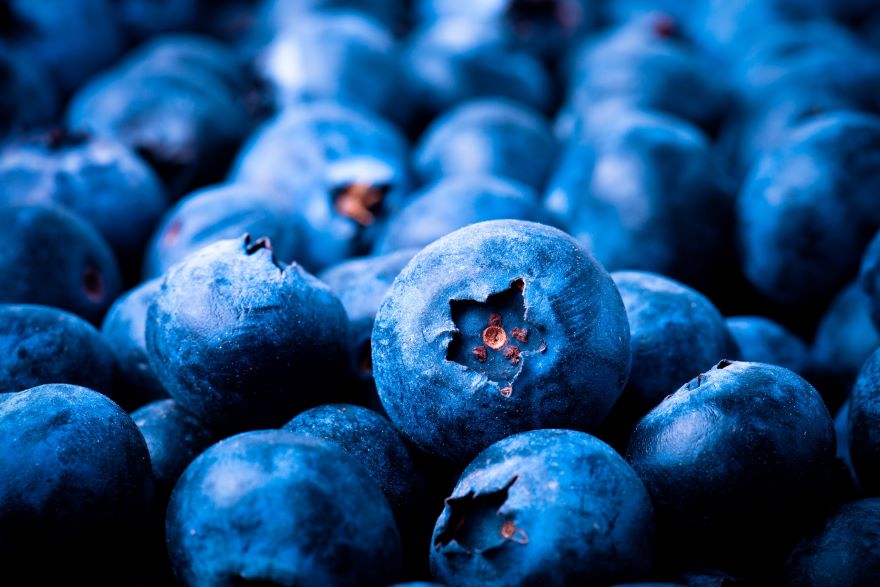Organic blueberries have captivated the attention of health-conscious consumers and culinary enthusiasts alike, earning their place as a staple in kitchens around the world. These small but mighty fruits are renowned for their intense flavor and versatility, capable of enhancing a wide array of dishes from morning smoothies to gourmet desserts. While the allure of conventional blueberries remains, it’s the organic variety that’s seen a spike in popularity, with many people drawn to their pesticide-free cultivation and perceived health benefits.

As a conscious consumer, I can’t help but appreciate organic blueberries for more than just their taste. They are known for their high antioxidant content, leading to a range of health benefits including support for heart health and cognitive function. Moreover, I find that organic blueberries, cultivated without the use of synthetic pesticides and fertilizers, often present a richer and more authentic flavor—a reflection of the careful farming practices embraced by organic growers. Whether enjoying them fresh, frozen, or dried, organic blueberries offer a delightful experience that marries taste with nutrition.
Key Takeaways
- Organic blueberries are celebrated for their robust flavor and culinary versatility.
- These berries are linked to numerous health benefits due to their high antioxidant levels.
- Organic cultivation methods enhance their quality, ensuring a pure and natural product.
The Allure of Organic
In this section, I’ll explore what sets organic produce apart, focusing specifically on the benefits and nuances of opting for organic blueberries.
Understanding Organic Certification
Organic certification is the validation that a product meets strict guidelines set by renowned organizations, like the USDA or MOFGA Certified Organic. To label blueberries as organic, farmers must adhere to practices that avoid the use of synthetic pesticides and fertilizers, instead employing tactics such as crop rotation and green manure to maintain soil health and manage pests.
Why Choose Organic Blueberries
I find that organic blueberries are highly sought after for several key reasons. First and foremost, they’re grown without synthetic pesticides, which aligns with many consumers’ desires for natural and environmentally friendly farming methods. Moreover, there’s a growing body of research suggesting that organic blueberries might contain slightly higher levels of certain antioxidants compared to their conventionally grown counterparts. Choosing to buy organic blueberries supports not only personal health but also promotes sustainable farming practices.
Culinary Delights
Incorporating organic blueberries into various recipes not only elevates the flavor profile but also infuses natural goodness into every dish. Through baking and blending, I’ve found that these vibrant berries transform ordinary recipes into extraordinary delights.
Organic Blueberries in Baking
I often use organic blueberries in my baking for their fresh, tangy burst of flavor which pairs exceptionally well with both sweet and savory components. Blueberry pies and jams are classic examples, where the berries’ natural pectin helps thicken the filling, creating a perfect consistency without the need for artificial additives.
- Pies: For a delightful blueberry pie, prebaking the crust ensures it stays crisp. A filling of organic blueberries, sugar, and a touch of lemon juice underscores the fruit’s natural flavor.
- Jams: In jam-making, simmering the blueberries with sugar allows for a spreadable, glossy concoction that enhances morning toast or yogurt.
Blueberries’ versatility also shines in simpler baked goods such as muffins and scones, offering a juicy surprise in every bite.
Creating Smoothies and Snacks
Smoothies are a splendid way to enjoy organic blueberries, as they maintain the berries’ nutritional integrity while delivering a delectable, refreshing beverage. For a nutrient-packed smoothie, combining these berries with bananas, spinach, and a choice of milk yields a vibrant, energy-boosting drink.
- Snacks: A handful of organic blueberries can elevate the simplest snacks. I toss them into Greek yogurt or oatmeal, providing a welcomed natural sweetness and a pop of color.
In exploring snacks, transforming blueberries into a homemade fruit leather or folding them into granola bars gives a nourishing option for on-the-go.
By harnessing the subtle sweetness and robust flavor of organic blueberries, they prove invaluable in my culinary creations, from the simplest smoothie to the most intricate pie. Their versatility in both flavor enhancement and nutritional value is unparalleled in the realm of baking and snack preparation.
Health and Nutrition

Blueberries are not just a delicious addition to my diet; they are packed with an array of nutrients that support my overall health. With a unique combination of vitamins, minerals, and antioxidants, these small fruits offer big health benefits, especially when it comes to their potential in disease prevention.
Nutritional Benefits of Blueberries
Blueberries boast a significant nutritional value, supplying essential nutrients while remaining low in calories. In just one cup of blueberries, I get a healthy dose of Vitamin C, Vitamin K, and manganese, along with important dietary fiber. This nutritional makeup contributes to overall health maintenance, aiding in processes like bone development and wound healing. I also appreciate that blueberries have a naturally sweet taste, satisfying my cravings without the need for added sugars.
Nutrition Facts (per 1 cup of blueberries):
- Calories: 84 kcal
- Protein: 1g
- Carbohydrates: 21g
- Fat: 0.5g
- Dietary Fiber: 3.6g
- Vitamin C: 24% DV
- Vitamin K: 36% DV
- Manganese: 25% DV
Blueberries in Cancer Prevention
In my search to support cancer prevention through diet, I’ve learned that blueberries are particularly promising due to their high antioxidant content. The phytochemicals found in blueberries have been studied for their potential to protect cells against damage and reduce the risk of cancer. Compounds such as anthocyanins, which give blueberries their rich color, are of significant interest in research. The general health benefits tied to the bioactive compounds in blueberries, especially in terms of impacting cancer development, make them an important focus in human intervention studies regarding dietary influences on health.
Seasonal and Regional Varieties

When discussing organic blueberries, their taste and quality depend significantly on the season and region they are grown in. I will guide you through the optimal times and locales to choose the finest blueberries for your table.
The Best Month to Enjoy Blueberries
Blueberries come into season in various parts of the world at different times, depending on the climate and the variety. In general, August is the prime month to enjoy fresh blueberries. During this period, you’ll typically find the highest concentration of ripe, plump berries that offer the perfect balance of sweetness and tartness. These berries are not only ideal for fresh consumption but also hold up well in baking and preserving.
Maine’s Finest Blueberries
Maine is famed for its wild blueberries, which have a more intense flavor compared to cultivated varieties. Maine blueberries usually hit peak season in August, and the state even celebrates this with an annual festival. If you’re looking for a distinct taste, Maine’s finest blueberries should be at the top of your list. They’re smaller in size, but what they lack in size they make up for with their deep flavor and potential health benefits.
Organic Blueberry Care
When caring for organic blueberries, I pay close attention to proper storage techniques and the labels for quality assurance, to ensure that the fruit remains as fresh and nutritious as possible.
Storing and Washing Blueberries
Storing Blueberries:
- Keep them in the refrigerator to extend freshness.
- Place them in a shallow container to prevent bruising and cover with a plastic wrap or lid.
Washing Blueberries:
- Rinse them with cold water just before consumption.
- Avoid washing all at once to prevent spoilage; instead, wash what I plan to eat or use immediately.
Reading Labels for Quality Assurance
Understanding Labels:
- I always check for the “organic” label to certify they were grown without synthetic pesticides or fertilizers.
- Certification details often displayed, like USDA Organic, assure me of the quality and standards met during cultivation.
Quality Check:
- Examine the package for freshness, looking for plump, firm, and mold-free blueberries.
- Ensure the package is sealed properly to avoid contamination and preserve the quality.
Frequently Asked Questions
In this section, I address some of the most common queries about organic blueberries, highlighting their health benefits, nutritional value, and selection tips.
What are the benefits of eating organic blueberries?
Organic blueberries are known to have higher levels of certain nutrients and antioxidants, potentially making them a healthier choice for consumers concerned about nutritional content and the presence of synthetic chemicals.
How do frozen organic blueberries compare nutritionally to fresh?
Frozen organic blueberries maintain most of their nutritional value and are a good alternative to fresh blueberries. They are frozen soon after harvest, which helps to lock in their beneficial compounds.
What should I consider when buying organic blueberries in bulk?
When buying organic blueberries in bulk, consider their shelf life and storage options. Also, look for reputable sources to ensure quality and avoid potential contamination.
Do organic blueberries have a lower pesticide content than conventional blueberries?
Yes, organic blueberries are grown without synthetic pesticides. This generally results in a lower pesticide content compared to conventionally grown blueberries.
Is there a taste difference between organic and non-organic blueberries?
Some people may find that organic blueberries taste fresher or have a fuller flavor, but taste can be subjective and can also depend on the specific farm and harvest conditions.
How do I ensure I’m selecting the best quality organic blueberries at the store?
To select the best quality organic blueberries, look for berries that are firm and plump with a consistent, dusty blue color. The presence of a natural waxy sheen known as the “bloom” can be a sign of freshness.

*We may earn a commission for purchases made using our links. Please see our disclosure to learn more.



